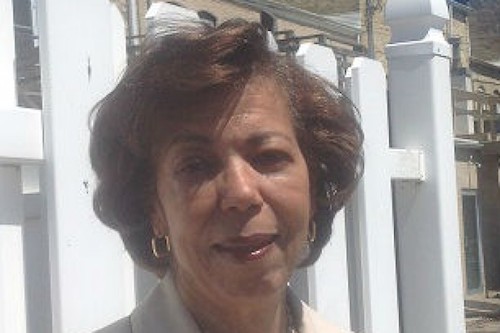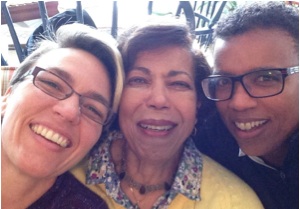Today on The Disability Tribune we are featuring a guest blog from visually impaired PhD candidate Jo Grove.
How does a 74-year-old, legally blind, African American woman living in Wisconsin hook up with the man voted the Best Disability Advocate of 2015 in the Bay Area? As usual, it’s all about who you know, and Belo knows my daughter, Dawn. (Both are talented people who met through Lambda Literary Foundation’s Emerging Writers Fellows, a program for LGBT writers.) When Belo learned that I am visually impaired, and that I’m three courses away from completing my PhD, he wanted to hear my story. I’m so grateful to Belo for inviting me to do a guest blog on his highly-regarded site.
I began to lose my vision in my mid-30s, but continued to work full time as a college administrator while raising four children. The eye disease I am diagnosed with is Rod-Cone Dystrophy. This means that the rods and cones at the back of the eye are disintegrating and have been doing so for the past 40+ years. There is no cure for this disease, and eventually I will be completely blind.
Earning this PhD has been a lifelong dream, and after five years of online study, I am at the end of the doctoral process. I have three courses remaining: Dissertation 2, On-Site Residency, and the Dissertation Defense course. My dissertation project topic is: “An Examination of the Services provided to the Blind and Visually Impaired by the State of Wisconsin.” I sit on the Board of The Wisconsin Statutory Council on Blindness, which created a committee charged with making recommendations to the state on improvements to the lives of the visually impaired in Wisconsin. This 9-person committee adopted my suggestion to submit a scientific study, which became my dissertation topic. When complete, my research will first go to the Office of the Blind and Visually Impaired (OBVI), and then to the Secretary of Human Services of Wisconsin, and, finally, on to the state legislature!
My colleagues and dissertation chair have often told me they are in awe of my ability to do this work with my visual impairment. I would be lost without my accessibility tools: my reverse colored computer monitor, my assistive binoculars, and, most importantly, ZoomText software, which allows the intense zoom I require, and reads text aloud to me as my condition worsens and the zoom function is not as effective for me.
In addition to the three courses, I’ll need to retain a dissertation editor due to my blindness, which makes the APA doctoral guidelines a problem for me. At the end of May, I will attend the fourth-year residency program in Phoenix, AZ, which will require airfare, hotel and meals. Lastly, I’ll need a website for my qualitative e-Delphi study, as well as a statistician to aid in accuracy in collecting the study data. But, first things first! I need support to finish my coursework.
I’m a life-long learner and educator. With my doctorate, I can continue to teach as well as learn. I have a chance to affect legislation in my state for the blind through my PhD research.


